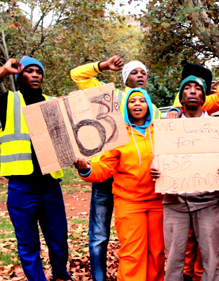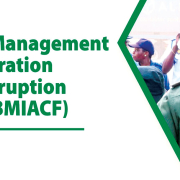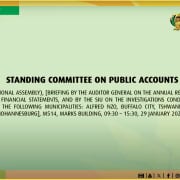|
Getting your Trinity Audio player ready...
|
 South Africa loses about R25-billion each year to corruption in government procurement – think textbooks not arriving on time at schools, shoddily built RDP houses and tender-rigging. But the real victims are the poor and marginalised, who depend on these procured goods and services.
South Africa loses about R25-billion each year to corruption in government procurement – think textbooks not arriving on time at schools, shoddily built RDP houses and tender-rigging. But the real victims are the poor and marginalised, who depend on these procured goods and services.
In 2011, Willie Homeyr, then head of the Special Investigating Unit (SIU) told Parliament that between R25-billion and R30-billion of the government’s procurement budget was lost to corruption; according to civil society activist Hennie van Vuuren, this is about 20% of the total procurement budget.
Corruption Watch has received 298 reports relating to corruption in public procurement and supply chain management and the question is whether these companies, awarded the tenders illegally, are able to provide the services tendered for? Take the Mvula Trust story and the Limpopo textbook saga – issues of procurement are clearly of concern. The harsh reality is that only a few people profit in these instances, as a result of corruption, and the majority, the intended beneficiaries, are the losers.
Education compromised
The lack of textbooks in Limpopo schools dominated the headlines in 2012, with many schools not receiving their education support material until well into the second-half of the academic year. The SIU report on the issue highlights irregularities and wasteful expenditure. The report, which was leaked to the Mail & Guardian, found that a R680-million contract was awarded to the politically connected EduSolutions for textbooks and educational material.
And the victims were again the disadvantaged – the pupils in the Limpopo schools. There are 5 297 schools in Limpopo and about 1.7 million students. Learners across three grades were affected by the failure of the Department of Basic Education to deliver learning material. Section 27 has reported that in a group of 25 schools, 70% of grade 10 pupils failed the 2012 mid-year exams.
Trust used as front to get tender
Another case of the few benefiting on the backs of the majority is the Mvula Trust Community Work Programme (CWP). In January, Corruption Watch's four-month investigation into Mvula Trust exposed gross irregularities in a tender vauled at R30-million.
Mvula Trust was used as a front for a company owned by an Mvula trustee. The CWP focuses on the creation of jobs for the poor – an initiative the trust has called “a South African success story”. It has employed 30 000 citizens, and the goal is 54 000 people as part of the project. However, in March, dozens of CWP employees arrived at the organisation’s Braamfontein offices demanding their wages. They said they had not been paid for three to four months and could no longer afford to buy food, pay rent or take care of their children’s welfare.
Yesterday, about 500 CWP employees gathered at Joubert Park in Johannesburg to express their anger again about late payments and low salaries – they earn less than R600 a month. A co-ordinator from the CWP spoke about the frustration of not receiving adequate equipment to complete the jobs designed by the programme.
RDP waiting game
RDP housing is yet another example of how the marginalised have to bear the brunt of corruption. People around the country are cheated because of shoddy workmanship and graft in the construction of RDP houses. Last week, CW published a story about Naomi Genu, who applied for an RDP house in 2005. After six years she was notified that she would receive a home. Today Genu is still without her house. This is the reality for many South Africans, who have been waiting for a promised house since 1994. A research report by the Housing Development Agency stated that 1 779 426 people lived in informal settlements; according to the General Household Survey of 2009, 458 00, or 38%, of people living in shacks had at least one member on the housing waiting list.
In her presentation to the portfolio committee on human settlements in February, public protector Thuli Madonsela outlined key observations on procurement corruption in the RDP housing sector. She noted that there had been an alleged irregular award of tenders, vetting of service providers, overbilling, false billing, and a lack of standardisation of houses. In the reports relating to housing received by CW, corrupt public officials are alleged to have awarded tenders to companies to which they have some form of personal connection, or that the awarding of tenders may involve bribes being paid to officials by private commercial companies.
In 2012, the minister of human settlements, Tokyo Sexwale, said his department spent R400-million of the RDP housing budget to mend substandard houses built since 2002. He noted that 7 000 new houses could have been built with that money. It was reported in 2011 that the SIU was investigating housing graft of R2-billion and that the unit was targeting five housing syndicates across the country. Sexwale said he was determined to root out “the incompetent shovel, wheelbarrow and bakkie brigade who line up for tenders only to cheat the poorest of the poor”.
The month of April signifies freedom and democracy for South Africa. In the past 19 years the country has made important and successful leaps, but looking back, one has to ask how it is possible that people are still living without adequate housing, education and jobs. It is the people who have nothing who stand to lose everything that should rightfully be theirs.









